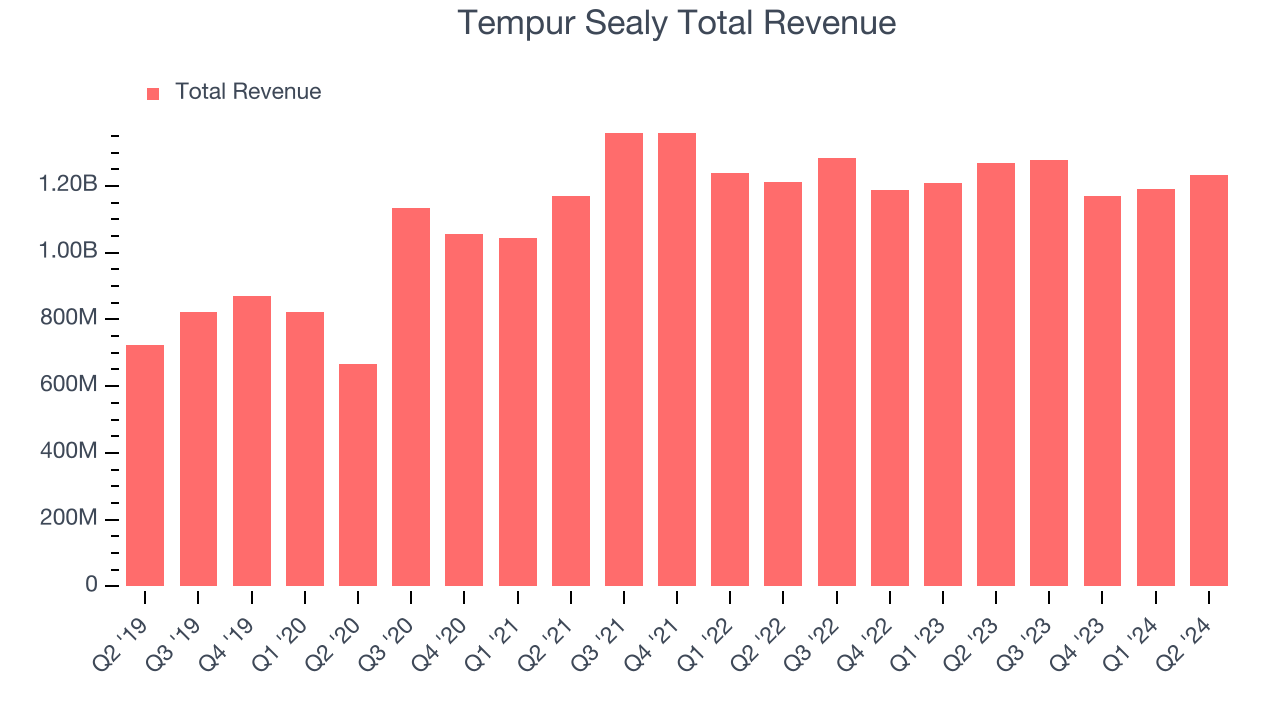
Bedding manufacturer Tempur Sealy (NYSE: TPX) will be reporting results tomorrow before market open. Here’s what investors should know.
Tempur Sealy missed analysts’ revenue expectations by 3.5% last quarter, reporting revenues of $1.23 billion, down 2.8% year on year. It was a slower quarter for the company, with underwhelming earnings guidance for the full year.
Is Tempur Sealy a buy or sell going into earnings? Read our full analysis here, it’s free.
This quarter, analysts are expecting Tempur Sealy’s revenue to be flat year on year at $1.29 billion, improving from its flat revenue in the same quarter last year. Adjusted earnings are expected to come in at $0.81 per share.

Heading into earnings, analysts covering the company have grown increasingly bearish with revenue estimates seeing 3 downward revisions over the last 30 days (we track 9 analysts).
Looking at Tempur Sealy’s peers in the home furnishings segment, some have already reported their Q3 results, giving us a hint as to what we can expect. Mohawk Industries’s revenues decreased 1.7% year on year, meeting analysts’ expectations, and Leggett & Platt reported a revenue decline of 6.3%, in line with consensus estimates. Mohawk Industries traded down 13.7% following the results while Leggett & Platt was up 4%.
Read our full analysis of Mohawk Industries’s results here and Leggett & Platt’s results here.
There has been positive sentiment among investors in the home furnishings segment, with share prices up 3.3% on average over the last month. Tempur Sealy is down 4.7% during the same time and is heading into earnings with an average analyst price target of $57.75 (compared to the current share price of $49.55).
Unless you’ve been living under a rock, it should be obvious by now that generative AI is going to have a huge impact on how large corporations do business. While Nvidia and AMD are trading close to all-time highs, we prefer a lesser-known (but still profitable) semiconductor stock benefitting from the rise of AI. Click here to access our free report on our favorite semiconductor growth story.





